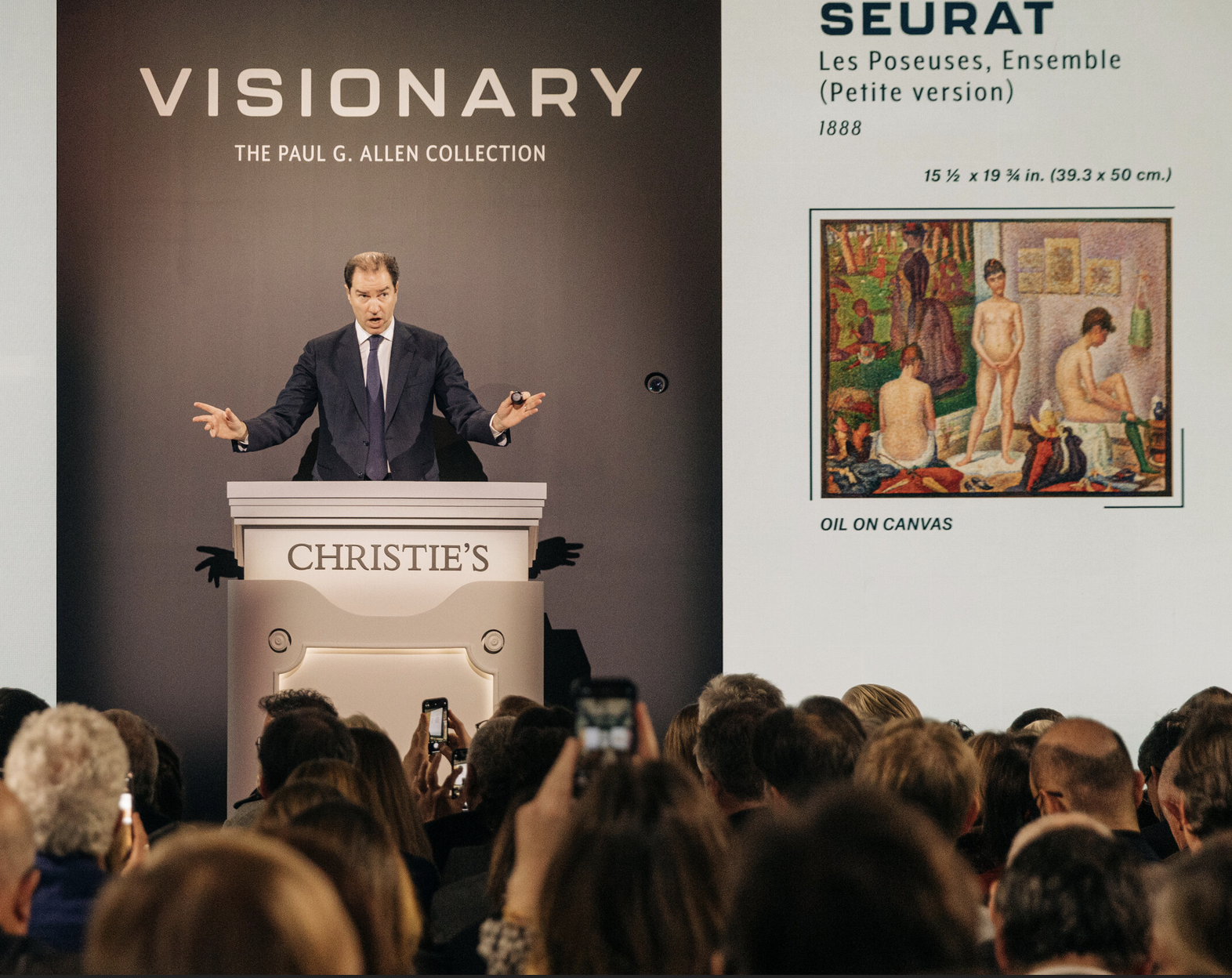An Art Advisor’s Role at auction
Image: New York Times
Few experiences in the art world rival the excitement of a live auction. The fast-paced rhythm of bids flying, the tension of competition, the thrill of securing a coveted work—auctions can be exhilarating. But behind the theater lies a complex landscape of risk, research, and strategy. That’s where an experienced art advisor becomes invaluable.
Whether you’re bidding for a work you’ve always dreamed of owning or considering selling a piece from your collection, having an expert at your side ensures you enter the process informed, protected, and positioned for success.
Buying at Auction: Due Diligence and Strategy
Art auctions can move quickly, but smart acquisitions require careful preparation. An advisor’s role begins well before the bidding starts:
Provenance Research: Your advisor will investigate the artwork’s ownership history, exhibition records, and published references to help confirm legitimacy and mitigate the risk of hidden title or legal issues.
Condition Assessment: Even reputable auction houses don’t always disclose every condition detail. In fact, most auction houses have a clear “buyer beware” statement in their terms and conditions. An advisor can arrange for in-person inspections, review condition reports, and, if needed, consult independent conservators.
Market Analysis: Is the estimated price in line with comparable works? Is now the right time to buy this artist? Advisors use their market knowledge to evaluate the appropriate price range for a given work and how it might fit with your collecting goals.
Bidding Strategy: Auctions often unfold unpredictably. An advisor will help you set maximum bids, understand bidding increments, and determine the best way to bid—whether it be in person, by phone, or via the advisor bidding on your behalf.
Understanding the True Cost: Winning bids come with additional expenses—buyer’s premiums, taxes, and shipping. Your advisor will provide a clear breakdown so you understand the full financial commitment of each incremental bid.
Selling at Auction: Positioning for the Best Result
Selling through auction can be an excellent way to realize value, but success depends on strategic positioning. An advisor can guide every step:
Choosing the Right Venue: Not all auctions or locations are created equal. An advisor helps select the sale, auction house, and even timing that maximizes your work’s exposure to qualified buyers.
Pricing Guidance: Advisors evaluate estimates, determine appropriate reserves (the minimum price you’ll accept), and ensure your expectations align with market realities.
Negotiating Terms: From commission rates to marketing commitments, your advisor reviews consignment agreements to protect your interests and optimize your returns.
Logistics and Presentation: Coordinating shipping, photography, and placement within the sale can all impact the final result. Advisors manage these details to showcase your work in the best possible light.
An Auction is an Opportunity—With the Right Expertise
Art auctions combine excitement with complexity. Whether buying or selling, an experienced advisor helps you navigate the process, ensuring your decisions are informed, your risks are mitigated, and you can enjoy the thrill with confidence.

